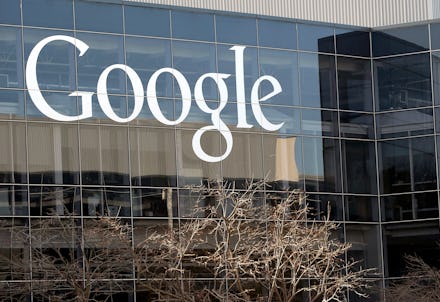Google's acceptance of Nazi search results is normalizing hate

Did the Holocaust happen? Is the Holocaust real?
Yes.
That's the result you should get when you Google simple questions about the Holocaust. But when you search for "did the Holocaust happen" or "is the Holocaust real," the top results are "Top 10 reasons why the holocaust didn't happen" from the neo-Nazi site Stormfront, and "Holocaust Against Jews Is a Total Lie - Proof" from the conspiracy theory site NoDisinfo.
At a time when hate crimes are spiking, anti-Semitic rhetoric is proliferating and the executive chair of a white nationalist news site was appointed to the White House, it is disconcerting to see actual neo-Nazi content and earnest Holocaust denial as Google's top results for a historical query.
And yet here we are.
The Holocaust — the mass murder of up to 6 million Jews, around 1.8 million non-Jewish Polish civilians and millions more during World War II — is not up for debate. It's well-documented.
But if you trust technology unconditionally, are uninformed and looking for historical information online, or even if you're a skeptic looking for the truth, Google's algorithm is dangerously misleading. And the company has no intention to change it.
Google can remove or change the search result. It hasn't.
"We are saddened to see that hate organizations still exist," a Google spokesperson said in an emailed statement to Mic. "The fact that hate sites appear in search results does not mean that Google endorses these views. Search is a reflection of the content and information that is available on the internet. A site's ranking in search results is determined by computer algorithms using hundreds of factors to calculate a page's relevance to a given query. We do not remove content from our search results, except in very limited cases such as illegal content, malware and violations of our webmaster guidelines."
Here's the thing: Algorithms aren't free from bias. Google searches for "black teenagers" have pulled up photos of mugshots, a search for "beautiful dreadlocks" yielded mostly white people, and let's not forget the tale of Tay, Microsoft's chatbot that got its plug pulled after the teen darling spiraled into white supremacy.
Google often adjusts its top-results page with a service called "featured snippets." It extracts the best answer to common questions and features it on the search results page. "We are always working to improve our ability to detect the most useful snippet, so the results you see may change over time," reads Google's support page.
Here's what happens when you search for "is climate change real" — a query similar to these Holocaust questions. This one, however, brings up a featured snippet that reads, "Irrefutable evidence from around the world ... [points] to the fact that climate change is happening now."
Does Google have its own fake news problem?
This month, Business Insider found that Google made changes to its algorithm that inadvertently highlighted more fake news and caused some inaccurate reports to outrank legitimate sources. For example, a query about Obama and the national anthem resulted in several high-ranking hoax stories.
Google has said it's aware of the issue. In December, Google killed a feature called "In the News," which had resulted in too many false results. "There should just be no situation where fake news gets distributed, so we are all for doing better here," CEO Sundar Pichai said, according to BI.
This is part of why Google's acceptance of anti-Semitic hate and neo-Nazi conspiracies feels baffling. It's yet another maddening example of a major tech company remaining reluctant to accept responsibility for accurate and unbiased information.
Facebook had a similar response when the company's leaders proclaimed that the social media giant — which has a trending news bar and a major fake news problem — is not a media company. In November, CEO Mark Zuckerberg said it was "a pretty crazy idea" that his platform could have influenced the election.
Meanwhile, 62% of adults get their news from social media, according to the Pew Research Center, and a BuzzFeed study found that right-wing sources publish misinformation on Facebook about twice as often as left-wing sources.
The Nazi search result goes against Google's own guidelines
Google's spokesperson told Mic that one of the "very limited" reasons Google might remove content is if it violates its webmaster guidelines.
According to Google's webmaster guidelines page, one of the basic principles is: "Don't deceive your users."
An anti-Semitic webpage falsely claiming that the death of millions of people never happened is certainly deceiving, to say the least.
The guidelines also note that "Google may respond negatively to other misleading practices not listed here."
Mic reached out to Google to find out if a neo-Nazi Holocaust denial page violates its basic principle of not deceiving users. We'll update with any response.